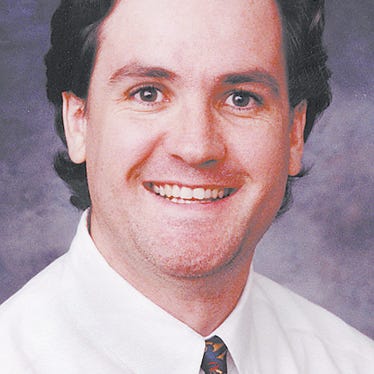
Controversy continues to swirl around the National Animal Identification System (NAIS), a USDA/APHIS-controlled registry for livestock and land where they are kept.
During a March 31 press conference, USDA secretary Tom Vilsack was repeatedly questioned about an animal identification system and food safety. Earlier in the day, Vilsack had testified about the same topics before Congress and claimed a desire to hear from those with privacy and other concerns before going forward with the program.
At the press conference, Vilsack was asked if, at least philosophically, he supports making the National Animal Identification System (NAIS) mandatory. He wouldn't be nailed down.
“I want to be clear about this. It is very important to the process — whether through a regulatory process or the passage of legislation — that we do everything we possibly can to incorporate the input of those with concerns with mandatory (animal) ID. We (want) to create a product … in which there is compliance and not necessarily a focus on day-to-day enforcement.”
So, is Vilsack supporting mandatory animal ID in principle?
“I'm concerned … about the circumstances of not having a system that is nationwide, reliable and would allow us to identify problems if (they arise) so we can mitigate the damage. It's extremely important to mitigate the damage.
“Having said that, a precondition to all this is reaching out to (nay saying) groups and basically listening to concerns about privacy, about confidentiality, about how it might work for those, for example, who are raising livestock on private versus those on public lands…
“Right now, there's a division. What I don't want is a circumstance where this is mandated and then people spend a great deal of time figuring out how to get around it. That does no one any good.”
Reporter: “It sounds like you do support moving forward with a mandatory system.”
Vilsack: “I feel like I'm repeating myself quite a bit here.
“(House Agriculture Committee) chairman (Collin) Peterson indicated a desire and interest in proceeding with the possibility of a mandatory system in one form or another or, as the chairwoman suggested, a discontinuance of the current system. (Peterson) indicated he wasn't interested in doing that without support from myself and, I believe, (Senate Agriculture Committee) chairman (Tom) Harkin.
“What I'm suggesting is a condition for moving to the next step is … an opportunity to sit down and encourage those opposed to (NAIS) to shape (the program) in the right way. After that opportunity, we'll go to the next step.”
What about the possibility of putting food safety oversight into a single agency?
“President Obama has indicated a real concern about food safety by the establishment of a working group (co-chaired by) USDA and the Department of Health and Human Services. There have been staff meetings already notwithstanding the fact that the FDA commissioner and HHS secretary haven't been confirmed (by Congress). When they're confirmed, it's my intention to sit down with them and talk about next steps with the working group.
“It's fairly clear we need to discuss the philosophy of food safety. Can we reach agreement that the philosophy should be driven by the need to prevent food-borne illness as best we can as opposed to/or solely looking at mitigating it? We'll also have a conversation about how we can better coordinate the activities of FDA relating to food and the USDA so we're always aware of what each (agency) knows.
“I suspect we'll also talk about whether we — at FDA and USDA — have sufficient authority to take steps to protect citizens of this country in the event there is a problem: how products are recalled, how extensive the recalls need to be and how specific they need to be.
“And I think there will be a conversation about organizational structure. But I don't think you get to that until you address the fundamentals of whatever system (is adopted). You have to have the right philosophy and the right focus.”
What was the primary reason for the extension of ACRE program sign-up period?
“There was recognition that the farm bill has a number of new programs and a number of new wrinkles to existing programs. There was a desire on the part of producers and folks within my office to make sure we gave enough time for folks to fully understand and appreciate the various nuances and changes in existing programs. (We also needed) to give the ACRE program more time to be understood so people can make informed decisions on which options would best fit their current production process.
“We felt the June 1 deadline was a little tight. …We decided to move it to Aug. 15.”
About the Author(s)
You May Also Like






